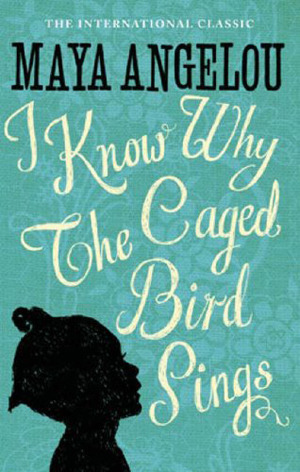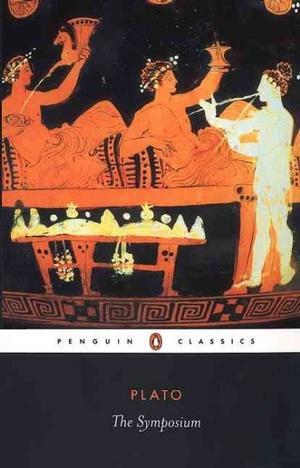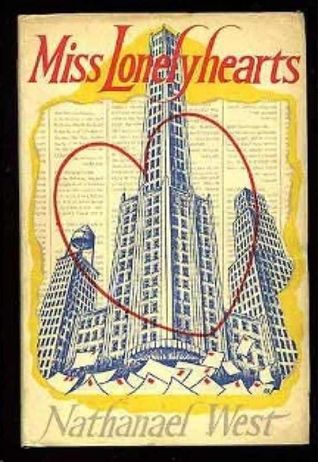Showing posts with label classics club. Show all posts
Showing posts with label classics club. Show all posts
Monday, 14 May 2018
Thursday, 3 November 2016
The Book of Rustem - translation by E.M. Wilmont Buxton
 I just love my book club. The fact that
each time the host/ess chooses a book, which we all then read and discuss,
gives me the opportunity to get a taste of new genres, authors and countries
that I may otherwise not have experienced.
I just love my book club. The fact that
each time the host/ess chooses a book, which we all then read and discuss,
gives me the opportunity to get a taste of new genres, authors and countries
that I may otherwise not have experienced.
So when our Iranian hostess informed us of the
Book of Rustem, and I got to see the beautiful illustrations, I knew I was in
for a treat: a sort of fairy-tale, set in beautiful Persia.
The book reads very comfortably - it helps that
I've read the Bible, because the style is comparable. Continuous
repetitions and use of the superlative set the scene and provide the background
for the reading experience.
The main character is Rustem and his adventures -
but before that, we get a glimpse of his predecessors, who are implicated in a
repetitive pattern of family feuds, heroic fights, plenty of courage shown, as
is the quest to avenge for any wrong-doing...
Friday, 13 February 2015
I know why the caged bird sings, by Maya Angelou
This is probably one of the more difficult posts in this blog, and I did play with the idea of not writing about this book at all. But, the use of this blog is primarily for putting down my personal thoughts and feelings about the books I read - and while I always express my own view on issues, I try to play the devil's advocate as well and try to see the other side of the matter.
With this in mind, I also would like to say how far I am from the state of things described in this book: I'm caucasian, European, middle-class, pretty well educated, never having been excluded from anything because of any restriction, never having witnessed slavery, segregation, racism (although one might argue that nowadays we witness a new kind of racism all over the planet...). In any case, I know why the caged bird sings had been on my list for quite some time and I looked forward to reading it:
Wednesday, 21 January 2015
The Classics Club: The Invisible Man, by H.G. Wells
I'm back in blogosphere after almost two years of an incredible slump in my reading habits (or any habits in fact, but that's another story...).
I've started again - baby steps - to read at a regular pace (at least half an hour in the mornings, when all is still quiet) and I am easing my way into the world of book challenges as well. It is for this reason that I wanted to commence my participation with something easy, with a taste of light reading.
A classic novella fits this bill perfectly, I believe. The Invisible Man, by H.G. Wells, is a well-known specimen and it will serve nicely as my first attempt in the 2015 challenges!
Wednesday, 17 December 2014
2015 challenge: Back to the Classics
Well, this challenge was also too tempting to resist! After I got the first taste of making lists with intended reading from O, here's another one that whetted my appetite:
Karen is hosting the 2015 Back to Classics challenge, and I'm still cautious and have (only) indicated 7 categories for which I intend to read books - obviously, if all goes well, there will be more:
- A Classic by a Woman Author: The Tennant of Wildfell Hall by Anne Brontë
- A Very Long Classic Novel: The Moonstone by W. Collins
- A Classic Novella: The Invisible Man by H. G. Wells
- A Classic with a Person's Name in the Title: Lady Chatterley's Lover by D. H. Lawrence
- A Humorous or Satirical Classic:Thank you, Jeeves by P. G. Wodehouse
- A Classic Children's Book: Charlotte's Web by E.B.White
- A Classic Play: A Streetcar Named Desire, by Tennessee Williams
One other category I'm interested in is the Forgotten Classic, and here I want to go through my Persephone catalogue to see which title could entice me...
Tuesday, 9 December 2014
2015 challenge: Reading England
 It's time I got my blog mojo back, and there is no better way to ease this transition than a challenge!
It's time I got my blog mojo back, and there is no better way to ease this transition than a challenge! The fact that a reading list has been prepared in advance, plus the feeling of actually achieving a goal are beneficial (at least for me): without further ado, my first challenge for 2015: Reading England!
Hosted by O at Behold the Stars, the goal is to travel around England by reading novels (English or not) set in the various counties. O has been kind enough to already provide a list with some of the more known books and which counties they refer to (including some counties I've never heard of...) so this should make my research easy.
I will not be very ambitious though: I'm going for level 2, meaning 4-6 books. I figured that it's better to aim low and get there than not. This is the list with my intended reading:
- The Tennant of Wildfell Hall by Anne Brontë (Cumbria)
- Lady Chatterley's Lover by D. H. Lawrence (Nottinghamshire)
- The Moonstone by W. Collins (Yorkshire)
- Lady Audley's Secret by Mary Elizabeth Braddon (Essex)
- Thank you, Jeeves by P. G. Wodehouse (Dorset)
- The Invisible Man by H. G. Wells (Sussex)
Here's looking at 2015 with a fresh look! I'll also be interested in learning about each of the counties I'm visiting, so as to better get into the spirit of the novel describing it. Double the fun...
Saturday, 16 November 2013
The Classics Club - Spin No. 4
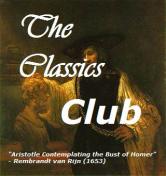 The Classics Club is organising a spin again! A list of 20 classics to read, all ordered in a nice list, and on Monday, there will be a spin, and whichever number is picked, this book I'll read by January 2014 - Let's go!
The Classics Club is organising a spin again! A list of 20 classics to read, all ordered in a nice list, and on Monday, there will be a spin, and whichever number is picked, this book I'll read by January 2014 - Let's go!My Spin list, by order of feeling:
My dreaded
2. Goethe - Faust (I'll either love it or hate it...)
3. Sueskind - Das Parfum (I've seen parts of the movie, and I was slightly nauseous...)
4. Kafka - Der Prozess (I really don't know what to expect here...)
5. Nietsche - Also sprach Zarathustra (why are 4 of my dreaded ones German???)
My desired
6. Rushdie - The Satanic verses (finally, to read what the whole fuss was about...)
7. Angelou - I know why the caged bird sings (both desired and dreaded, I hope it turns out to be great!)
8. Shakespeare - Taming of the Shrew (ohhh...)
9. Sophocles - Οἰδίπους Τύραννος (Oedipus Rex - a classic masterpiece)
10. Conan Doyle - Sherlock Holmes: Scandal in Bohemia (we all need a little scandal now and then...)
My oh well, whatever...
11. Shelley - Frankenstein (can you believe I haven't read this?)
12. Shakespeare - Othello (no comment)
13. Camus - La chutte (I have no idea what to expect)
14. Zola - Nana (leftover from Zolaaddiction...)
15. Darwin - On the origin of species (I have to read this at some point...)
My free choices
16. Swift - Gulliver's travels (I've been meaning to read this ever since I was a child)
17. Orwell - Animal Farm (a re-read, one of the books that have left a mark on me)
18. Christie - Murder at the Vickarage (a little whodunnit never hurts)
19. Miller - Death of a Salesman (I've seen the play quite a number of times, I need to read the book..)
20. Wharton - House of Mirth (I didn't like the first book of hers I read, so this is my second try)
I'm really curious to see which book I'll be reading - what fun!
UPDATE: Spin number is 10 -- Scandal in Bohemia, here I come...
UPDATE: Spin number is 10 -- Scandal in Bohemia, here I come...
Monday, 27 May 2013
The Classics Club - Crime and Punishment, by F. Dostoyevsky
 I read Crime and Punishment by F. Dostoyevsky in a readalong organised by Unputdownables over a period of three months. This is, in my opinion, the best way to read such a chunk of classic Russian literature - in a rythme that is manageable, with lots of individual perspectives heard on a plot written in a remarkable style and taking place in an era and a society that are mostly foreign to us.
I read Crime and Punishment by F. Dostoyevsky in a readalong organised by Unputdownables over a period of three months. This is, in my opinion, the best way to read such a chunk of classic Russian literature - in a rythme that is manageable, with lots of individual perspectives heard on a plot written in a remarkable style and taking place in an era and a society that are mostly foreign to us.
And yes, Dickens writes about similar circumstances but I find his writing style more "understandable". Also, the British reality is perhaps nearer my vision of past history in Europe. In any case, the fact that several people read this at the same time, with different translations (also a great way to learn different aspects of life depending on the translator's sources) and different annotations shedding light to background information, really proved helpful and made such a great book easy to read as well.
Thursday, 2 May 2013
The Classics Club: Anne of Green Gables
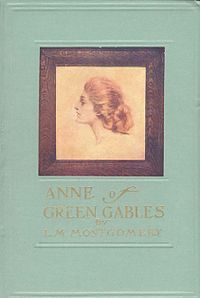 Sometimes I wonder how I went through childhood without any of the "classic" children's books. True, I had Verne's fantasy novels and Charlotte's web, but I think I jumped too soon on to "adult" literature and am left wondering whether I've missed on something. Making up for this, then, is to read such novels now and try to imagine whether I could have appreciated them at a younger age...
Sometimes I wonder how I went through childhood without any of the "classic" children's books. True, I had Verne's fantasy novels and Charlotte's web, but I think I jumped too soon on to "adult" literature and am left wondering whether I've missed on something. Making up for this, then, is to read such novels now and try to imagine whether I could have appreciated them at a younger age...
Ebookclassics organised a readalong for the month of April of Anne of Green Gables, and while I could not participate in the weekly discussions, I really appreciated the opportunity to visit one of the prolific authors of children's literature, Lucy Maud Montgomery and read the first novel of the Anne series.
Wednesday, 24 April 2013
The Classics Club: about heroes...
For April, the Classic Club came up with a question that requires some thinking before answering:
“Who is hands-down the best literary hero, in your opinion? Likewise, who is the best heroine?”
I had to think about this not because I didn't know which character I would look up to, but because it was not obvious why I feel that way.
| Anne Brontë |
Helen is a woman on the run - from her husband but also from society at large. She needs to take care of her son, so that he does not end up like his father. She turns her back on her house, her family and her social circle and flees somewhere where she can, once again, be the mistress of herself. She will support herself and her son with her paintings and will remain reclusive, on the lookout for "well-wishers".
Helen of course is not a proper heroine. On the contrary, I really regard her as an anti-heroine. She has no grand vision when she undertakes all these major steps: she is just a character of great spirit, and once she becomes disillusioned with her marriage, she revalues her autonomy, and she sees the vice all around her and she sees how her son is slowly sinking in it. While she knows she's breaking English Law, she just wants to escape all this.
| The Tenant of Wildfell Hall (1996) |
Another trait I liked about her is that, despite the turbulence and the blows she receives from everywhere, she retains her humanity. Even when her husband, who has caused all the pain she's experiencing is lying in his deathbed, she feels it's her moral duty to return to their house look after him and make him realise his sins. (Not to worry: Arthur is so delusional, he actually wishes Helen could "come with him" and pray for his salvation...)
What I pick up from her character: the strength to say no and not accept what I don't want -and to move on. It's more than "when life throws you lemons, make lemonade" - I don't want the lemons in the first place. However overwhelming a situation before me is, I have to find the strength to move ahead, and bypass the obstacles. Should I collapse in the process, I have to find the courage to get up, dust myself off and keep on walking...
Sunday, 21 April 2013
Zoladdiction: The Kill (La Curée)
 This is the book I should have started my adventures with Zola. It's just perfect! The language, the oh-so-slight cynicism, the neutral description of not-so-neutral circumstances...
This is the book I should have started my adventures with Zola. It's just perfect! The language, the oh-so-slight cynicism, the neutral description of not-so-neutral circumstances...
I cannot say enough about this book, and I don't intend to. The superficiality of the nouveau-riches is a well-documented subject, but I have to give the laurels to Zola. Especially when I read that he himself was penniless when writing this novel, and to get the information he went around the stately houses to witness the pointlessness of what he saw...
In modern terms, this would have been a soap-opera, but with a certain niveau... We are introduced to the family of Eugene Rougon's younger brother, Aristide - and here's the first twist already: in order not to embarrass Eugene's political ambitions, Aristide is to change his family name to Saccard. I just can't believe my eyes when I read this. Our society then is transparent in comparison to this! (This for some reason brings back to mind the story about Coco Chanel, who "invented" her origins when she became famous...).
Tuesday, 9 April 2013
The Classics Club: Xingu, by E. Wharton
When one is under a sick spell, one should stick to simple, short and entertaining stories: when I found myself recently under a heavy bout of tracheitis I turned to Xingu, by E. Wharton to ease my pain. It delivered: a cynical but very, very entertaining little story, perfect for my predicament...
Here I have to admit I was slightly apprehensive: I had started on the wrong foot with Wharton, and I knew this would not be an easy task. I should not have feared: I now know that Wharton is more than one piece of literature.
What is Xingu? well, we get to learn that at the very end of the story and this serves only to highlight the main point: the superficiality of "good society"... Because the story is about a book club, where only the "chosen" ones get to belong to, where only the "wise" get to showcase their books and where those who belong to neither cast get to show their wealth. It rang some bells with me, as I belong to two book clubs - and while there is nothing remotely similar to Xingu, I could recognise some instances I may have encountered myself (I'll leave it to this...)
The ladies of the book club are eagerly waiting the arrival of a famous author, to discuss her latest book. We are given the characteristics (i.e. the vulnerable attributes) of everyone in the group and we get an insight into their habits: we get to know Mrs. Plinth, the distinguished member, in particular. Looking down on everyone, she is the epitome of the "nerd-type" party of a literary group, a person who sees as their ultimate goal to make a name for a well-educated, industrious and valuable member (or a book club or society in general). She declares:
"Amusement is hardly what I look for in my choice of books"
No, of course not. One has to toil, or at least to make others thinks so. Because when in another instance a question is posed, our dear Mrs. Plinth is revealed to utterly dislike
"... being asked her opinion of a book. Books were written to read; if one read them what more could be expected? To be questioned in detail regarding the contents of a volume seemed to her as great an outrage as being searched for smuggled laces at the Custom House"
Now, I have met such people, I have to admit. And I have seen this struggle to pretend to being something more. Something greater. Something higher. And it just won't work. There will always be a black sheep (hello, Mrs. Roby), who will basically form part of this group by accident. But she will never strive to prove her worth against her fellow members. She is content with what she is and does, and will not hesitate to show how well she knows the others by playing a nice little farce. A farce so well executed, she will even fool the distinguished guest. The guest who will recognise Mrs. Roby's genius and will leave the whole group to further engage in a discussion with her. Double the trouble then: the group agree it's time they let Mrs. Roby go. They shan't be made to look like fools by someone who is not deemed suitable to "participate in the mental gymnastics of the club".
And so, order is back: everyone in the group will have their distinct role to play, and there will be no more disruptions by "outsiders". Yes, it's all coming back to me, I knew I recognised this story...
Xingu is available for free on Project Gutenberg. This post will also be published on Project Gutenberg Project.
Xingu is available for free on Project Gutenberg. This post will also be published on Project Gutenberg Project.
Wednesday, 3 April 2013
The Classics Club: The Thirty-nine Steps, by J. Buchan
 John Buchan is a well-known Scottish author who wrote The Thirty-nine Steps while recuperating from an illness. The title of the book came from a flight of 39 steps found in this nursing home...
John Buchan is a well-known Scottish author who wrote The Thirty-nine Steps while recuperating from an illness. The title of the book came from a flight of 39 steps found in this nursing home...
It is considered one of the first "shockers" - combining personal and political drama -, but I actually watched Hitchcock's film adaptation by the same name first: though not one of his best and memorable, it was adventurous enough to let 1.5 hours pass by. As I came across the book, though, I wanted to see whether the plot there would be "flat" compared to the film, or whether it would be just as thrilling...
Saturday, 30 March 2013
The Classics Club: This Side of Paradise
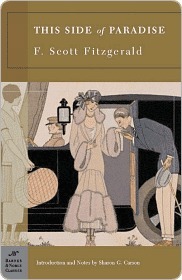 Having read The Great Gatsby and fallen in love with Fitzgerlad's story-telling, I couldn't help but wonder whether this was a one-off experience.
Having read The Great Gatsby and fallen in love with Fitzgerlad's story-telling, I couldn't help but wonder whether this was a one-off experience.
I was so mesmerised by the techniques he used, that I wanted to have more of it - and so chose to read This side of Paradise, Fitzgerald's first novel, semi-autobiographical, and the book that shot him to fame.
Would I distinguish his brilliance already there? Would I feel the "lost generation" he so eloquently spoke about?
Fitzgerald was in his early 20s when his wrote this book, and used elements from his personal experience to draw the character of Amory Blaine: a well-off, spoilt-rotten mama's boy who grows into a sad, lonely young man, never meant to find happiness...
Wednesday, 27 March 2013
The Classics Club spin: Plato's Symposium
On this first Classics Club spin, lucky number 14 got me The Symposium by Plato - an essay on the many aspects of love and an insight into the notion of platonic love.
The title means something like "a get-together with drinks" which is what DOES NOT happen when several of the main characters meet to eat and be merry (they actually talk of the vice of drinking...oh Dionysus!), and where Socrates will eventually speak of his version of love.
We listen to the description of this feast organised in honour of Agathon through Socrates' companion there, Aristodemus, who recounts the story to Apollodorus, who recounts the story to us. Complicated, true, but once one gets over these levels of interaction, the story becomes simple enough for us to enjoy...
Wednesday, 13 March 2013
Modern March: Miss Lonelyhearts
I had long wanted to read Miss Lonelyhearts by N. West. When Allie offered to host Modern March, I knew this would be a great opportunity to do so.
When I finished it, I was perplexed. Too many feelings, sometimes contradicting each other, left me wondering at the messages West was trying to get across. I couldn't say I didn't like it, but reading Miss Lonelyhearts certainly was not easy...
Dealing with religion is never easy. There's never a universally accepted manner in which to portray one's struggle with moral values and the contrast with modern life. Combined with a failed society, in the midst of an economic depression, one can feel the despair Miss Lonelyhearts experiences in his daily life.
Miss Lonelyhearts is an advice columnist, receiving lots of letters asking for a ray of hope. His conviction is that Christ is the answer for their ailments, but Shrike, his boss, thinks otherwise - they need this column to increase newspaper circulation, so art has to be used instead, because art is all about suffering...
Wednesday, 6 March 2013
The Classics Club: On Jane Austen
For March, the Classics Club's question came at the right time:
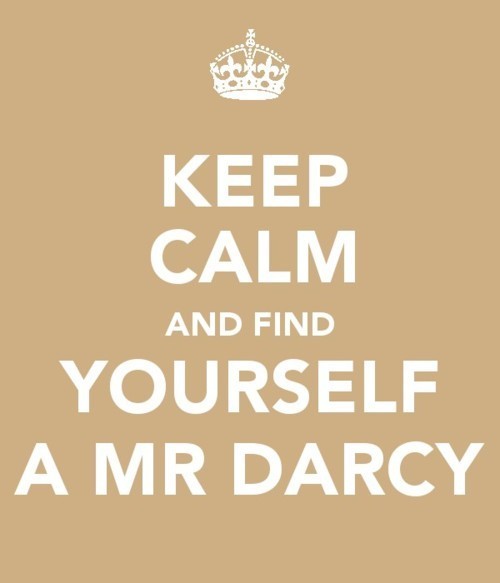 I first came across Jane Austen when I saw Pride and Prejudice. This film is considered representative of Austen and the famous scene of Mr. Darcy in a wet shirt is still one that first comes to mind when referring to this film. The film, but not the novel. I've long had a "heated" argument with a friend Austenite (in contrast to me being a Brontënite...), where I would accuse her of reading "Harlequins" (the bad romance novels) - in Brontë novels, everything is gloom and doom -- and much closer to the reality of that period, I said. In vain did she try to convince me that no, Austen novels, while they do include romance, also devote a major part in social commentary. I simply refused to see this...
I first came across Jane Austen when I saw Pride and Prejudice. This film is considered representative of Austen and the famous scene of Mr. Darcy in a wet shirt is still one that first comes to mind when referring to this film. The film, but not the novel. I've long had a "heated" argument with a friend Austenite (in contrast to me being a Brontënite...), where I would accuse her of reading "Harlequins" (the bad romance novels) - in Brontë novels, everything is gloom and doom -- and much closer to the reality of that period, I said. In vain did she try to convince me that no, Austen novels, while they do include romance, also devote a major part in social commentary. I simply refused to see this...
Do you love Jane Austen or want to “dig her up and beat her over the skull with her own shin-bone”?
I'm a very recent Austen reader. I blame the movie versions of her books for not reading her sooner, all about the romance and the oh-so-beautiful characters, and oh the drama of losing one's loved person, going through such horrible calamities - but not to worry, everything turned out well in the end...
 I first came across Jane Austen when I saw Pride and Prejudice. This film is considered representative of Austen and the famous scene of Mr. Darcy in a wet shirt is still one that first comes to mind when referring to this film. The film, but not the novel. I've long had a "heated" argument with a friend Austenite (in contrast to me being a Brontënite...), where I would accuse her of reading "Harlequins" (the bad romance novels) - in Brontë novels, everything is gloom and doom -- and much closer to the reality of that period, I said. In vain did she try to convince me that no, Austen novels, while they do include romance, also devote a major part in social commentary. I simply refused to see this...
I first came across Jane Austen when I saw Pride and Prejudice. This film is considered representative of Austen and the famous scene of Mr. Darcy in a wet shirt is still one that first comes to mind when referring to this film. The film, but not the novel. I've long had a "heated" argument with a friend Austenite (in contrast to me being a Brontënite...), where I would accuse her of reading "Harlequins" (the bad romance novels) - in Brontë novels, everything is gloom and doom -- and much closer to the reality of that period, I said. In vain did she try to convince me that no, Austen novels, while they do include romance, also devote a major part in social commentary. I simply refused to see this...
Fast forward to my blogging adventure, where I read Lady Susan. What a revelation! I was reading something of Austen that did not ooze with romance, did not blind me with Herculian handsome men and definitely did not describe any damsels-in-distress! Furthermore, I could actually pick up her wittiness and the subtle manner with which she managed to include the famous "social commentary". I was relieved - I could like Austen after all!
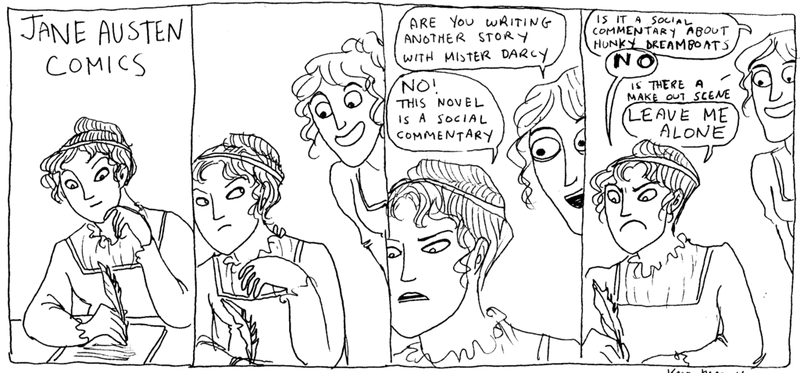 |
| (credits) |
As I said, it's still baby steps for me. I've recently read Persuasion, which continued the previous experience of Lady Susan and also included politically-incorrect references -- much to my delight! (although, to be fair, I also liked the movie adaptation - Ciarán Hinds is Mr. Darcy for me!)
I still love my Brontës. There is something when I read their novels that stays with me long after I've finished reading. I want that kind of feeling when I read Austen - up to now, I'm happy to report that it looks promising. I look forward to reading more of dear Jane...
Monday, 4 March 2013
The Classics Club: Cymbeline
For February's Let's Read Plays, I chose to read Cymbeline by Shakespeare. I was intrigued by the reports I had read about this not being Shakespeare's finest works, of it actually being the work of someone else, or - worse - of it being pieced together and not in the smoothest way...
Well, in a nutshell, I have to agree. I was almost frustrated when I finished reading it because I did not know what to make of it. The mess in the plot, the unbelievable twists, the Deus ex-machina and the forced happily ever after - well, at least it made for an eventful reading...
Thursday, 28 February 2013
The Classics Club: Les liaisons dangereuses
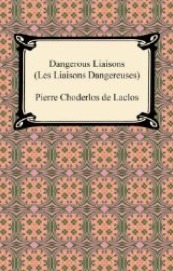
Leave it to Delaisse to organise French February and introduce non-English classic literature that would have taken me ages to discover...
The Dangerous Liaisons by Pierre Choderlos de Lactos is a novel published just before the French revolution, about the immorality of the aristocratic classes, and I think I know it more from the various film adaptations than the book itself.
The novel is written in epistolary form, which just so happens to be my favourite. There is a distance one can take from the events described in the novel, so as not to be completely involved in the highs and lows of the aristocratic life, but on the other hand, one can read what others hear and feel much better (speaking would include more passion and less detail, while describing the same things would be neutral, less emotional...)
We enter the lives of Marquise de Merteuil and Vicompte de Valmont - two members of the high society, bored to death and trying (desperately) to hang on to the power they have against each other. I read the novel in the original, and I've found it to be an extremely good show of how the French language can be so "correct" and "vulgar" at the same time: the nuances, the double-entendres give and take from the beginning, and I thoroughly enjoy reading it.
Other characters join in the plot, and slowly I get the real image of what is happening: this is not a novel about love - it's about power, class hierarchy, fear of attachment and backstabbing whoever stands in the way. I can sense the tragedy lurking in every corner, waiting to happen. Still, I cannot feel anger or disgust towards either of the two main characters - they are the product of their society and, as the Marquise herself says, they are self-made, have managed to stand out in society and will, under no circumstance, yield this "advantage" to anyone. And, while de Lactos was trying to paint the "wickedness" of the aristocracy in vivid colours, I believe it has become a classic because it describes personal feelings (or absence thereof) still found in our society, where we seek to maintain our autonomy to the detriment of close liaisons with people around us.
Another interesting fact about this novel is the date of publication, just before the French Revolution - whether, of course, this novel would have any real influence to the events leading up to the elimination of this unequal lifestyle is to be debated, but I could well imagine the scandal produced, the identification with real people and the discovery of the wall between the servant class/bourgeoisie with the aristocrats just put one more stone towards the final confrontation.
A novel worth reading - in French if you can - more than once, to witness a masterpiece of the limitations of the affairs of the heart...
Wednesday, 13 February 2013
The Classics Club: Spinning...
 The Classics Club is organising a spin! What's this, you say? A nice little challenge, that's what it is! A list of 20 classics to read, all ordered in a nice list, and on Monday, there will be a spin, and whichever number is picked, this book I'll read by April 2013 - Let's go!
The Classics Club is organising a spin! What's this, you say? A nice little challenge, that's what it is! A list of 20 classics to read, all ordered in a nice list, and on Monday, there will be a spin, and whichever number is picked, this book I'll read by April 2013 - Let's go!
My Spin list, by order of feeling:
My dreaded
2. Goethe - Faust (I'll either love it or hate it...)
3. Sueskind - Das Parfum (I've seen parts of the movie, and I was slightly nauseous...)
4. Kafka - Der Prozess (I really don't know what to expect here...)
5. Nietsche - Also sprach Zarathustra (why are 4 of my dreaded ones German???)
My desired
6. Rushdie - The Satanic verses (finally, to read what the whole fuss was about...)
7. Angelou - I know why the caged bird sings (both desired and dreaded, I hope it turns out to be great!)
8. Shakespeare - Taming of the Shrew (ohhh...)
9. Conan Doyle - Sherlock Holmes: Scandal in Bohemia (we all need a little scandal now and then...)
10. Sophocles - Οἰδίπους Τύραννος (Oedipus Rex - a classic masterpiece)
My oh well, whatever...
11. Shelley - Frankenstein (can you believe I haven't read this?)
12. Scott Fitzgerald - This side of Paradise (want to see whether the genius of Gatsby will continue)
13. Camus - La chutte (I have no idea what to expect)
14. Plato - Συμπόσιον (Symposium - let's talk about love)
15. Darwin - On the origin of species (I have to read this at some point...)
My free choices
16. Swift - Gulliver's travels (I've been meaning to read this ever since I was a child)
17. Orwell - Animal Farm (a re-read, one of the books that have left a mark on me)
18. Christie - Murder at the Vickarage (a little whodunnit never hurts)
19. Miller - Death of a Salesman (I've seen the play quite a number of times, I need to read the book..)
20. Wharton - House of Mirth (I didn't like the first book of hers I read, so this is my second try)
I'm really curious to see which book I'll be reading - what fun!
UPDATE: It's lucky number 14! Symposium, by Plato, an elegy on love... Happy reading to all classic clubbers!
UPDATE: It's lucky number 14! Symposium, by Plato, an elegy on love... Happy reading to all classic clubbers!
Subscribe to:
Posts (Atom)

